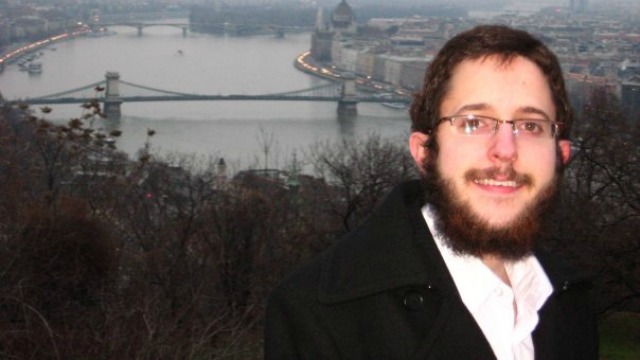There are around 2,000 Jews in Wales, the smallest community of any major religion. So why is such a small group the target of so much hate?

Six years ago in 2017, Cardiff United Synagogue increased security measures as a response to a rise in hate crimes across Wales and England.
Speaking at an event in the city, Cardiff Central MS Jenny Rathbone questioned the need for this: “How much of it is for real and how much of it is in their own heads is really hard for an outsider to judge,” the Labour MS said, adding “I think siege mentalities are also part of this.”
The following year, the Jewish Chronicle published a recording of her comments. Rathbone was suspended from the Labour party in November. The Cardiff central MS was one of 96 Labour members suspended from the party due to antisemitism in 2018.
That year saw the highest ever recorded rates of antisemitism in the UK. 10 of those incidents were in Wales.
By 2022, this had over tripled to nearly 40 incidents in Wales. This equates to around one in five of all anti-religious hate crimes that year.
Judaism is by far the smallest major religion in Wales, making up 0.7% of the religious population. This is around half the size of the next largest religion, Sikhi.
Across England and Wales, Sikhs experience 2% of all religious hate crimes. Whilst still significant, this is notably smaller than the 17% share Welsh Jews experience
Why, for such a small community, are Wales’ Jewish community the target of such a disproportionate amount of hate?
Visibility
Rabbi Michoel Rose is clearly loved by his congregation. As soon as he opens the door to the Cardiff United Synagogue in Cyncoed, he is inundated with questions, chit-chat and requests.
Where others may be overwhelmed by the overlapping conversations, Rose stoically takes it in his stride.
Rose, 35, was born in Leeds. He came to Cardiff via Manchester, Israel and New York, becoming Rabbi at the synagogue in 2015.
Rose said Cardiff’ Jewish community is much smaller than other places he has lived.
According to the latest census in 2021, there are 2,044 Jews in Wales, the majority of which live in Cardiff.
The capital is home to 690 Jewish people. Rabbi Rose’s birthplace of Leeds, which is twice the population of Cardiff, is currently home to 6,267 Jews, meaning Cardiff’s Jewish community could fit into Leeds over nine times.
In ten years, this number has broadly remained the same. In 2011, there were 2,064 Jewish people in Wales: a difference of just 20 over a 10-year period.
Compared to other cities, Rabbi Rose said he has not had many negative experiences in Cardiff, which may be in part to the size of Cardiff’s Jewish population.
Rose said it may be because “People never see a Jew here really, visibly Orthodox.
“If they see one,” Rose continued, “they’re like ‘Oh, what’s this?’ It’s more of a curiosity than an issue.”
Rose said the streets are not where most antisemitism takes place.
“I think certainly online, there’s lots of antisemitic stuff on Twitter, on social media,” the rabbi said. “The [crazier] the conspiracy theory, the more acceptable it is.”
A 2022 Ofcom report found that over a third of Welsh 8- to 17-year-olds have seen hateful content online.
The volume of online hate speech directly affects hate crimes carried out, according to HateLab: a data centre monitoring and researching online hate speech.
HateLab measured mentions of hate speech in specific areas along with hate crime on the streets.
Professor Matthew Williams, director of HateLab, discussed this correlation in a BBC documentary hosted by comedian and author of Jews Don’t Count David Baddiel.
“We found that, consistently, throughout those areas there was a pattern that emerged,” Williams told Baddiel. “About a week after a peak in hatred on social media we saw an increase in hate on the streets.
“This gives us some indication that there’s a potential relationship between the two,” said Williams.
Rabbi Rose is aware of the correlation. The additional security for his synagogue was in response to such a spike.
“The security is not for fun. It’s because there are people who are actively trying to cause harm,” he said.

Education and preservation
Other forms of media have combatted misinformation by highlighting the reality of Jewish history and experience.
Pentiment, a videogame released in November, is set in a historically accurate depiction of 16th century Bavaria. Your character writes often to her friend Esther: the daughter of Jewish printers living on the outskirts of nearby Prague.
Esther and her family are successful but are not allowed into the city due to their faith. Prague expelled all Jews twice in the 16th century despite many practicing valuable trades.
Josh Sawyer, Pentiment’s director, was intent on exploring characters from all walks of society. Sawyer told the Friends Per Second Podcast “I want to show everyone, including printers and millers and noble people and executioners and tinkers and Jews.”
Jewish characters also use a traditional form of the Lord’s name in conversation, HaShem, educating players on Jewish history and culture.
Similar education is taking place in Wales too.
A former synagogue in Merthyr Tydfil is being transformed into the Welsh Jewish Heritage Centre.
The project, run by the Foundation for Jewish Heritage, aims to “Educate and celebrate the Jews of Wales, while conveying an important message about diversity, tolerance and understanding,” according to their website. Its patrons include Huw Edwards and David Baddiel.
“The [crazier] the conspiracy theory, the more the more acceptable it is.”
Understanding
A year after Jenny Rathbone’s comments on his synagogue’s security, Michoel Rose met with the Cardiff Central MS to discuss what she had said.
“I think she realised a lot of those comments were not based on knowledge,” Rose said, “or based on an outsider’s knowledge that is not aware of the situation in the way we experience it.”
